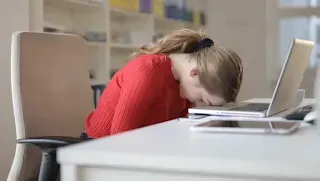Tech overuse and poor sleep are wrecking teen health. Learn how screens impact sleep and what to do before it messes up their mental and physical growth.
Let’s cut straight to it — teens are sleeping less and scrolling more. And it’s messing them up.
Phones, tablets, and screens are glued to their faces until 2AM. And the side effects aren’t just tired mornings — they’re mental breakdowns, poor grades, mood swings, and even long-term health damage.
How Tech Messes With Teen Sleep
Here’s what’s happening every night in millions of bedrooms:
- Blue light from screens blocks melatonin (the sleep hormone)
- Scrolling stimulates the brain — instead of slowing it down
- Social media creates anxiety, FOMO, and comparison overload
- Notifications disrupt deep sleep (even when phones are on silent)
- They stay up past midnight — then wake up at 6AM for school
That’s not just bad sleep. That’s sleep deprivation. And it adds up fast.
What It Does to the Body and Brain
Chronic lack of sleep destroys more than energy. It crushes mental and physical health.
- Weakens immune system
- Increases anxiety and depression
- Impairs memory and focus
- Raises risk of obesity, insulin resistance, and type 2 diabetes
- Causes mood swings and irritability
- Delays brain development in key decision-making areas
The CDC says teens need 8–10 hours of sleep. Most get 6 or less.
Stats That Should Wake You Up
- Only 22% of teens get enough sleep (CDC)
- 53% more likely to sleep under 6 hours if they use tech after 9PM (JAMA)
- 30% drop in memory test scores after just 1 night of poor sleep
- 58% increase in depression risk in sleep-deprived teens (NIH)
- 72 minutes more sleep per night when phones are removed from bedrooms
- 2x higher anxiety in teens with 4+ hours of screen time daily
Why This Isn’t Just a Teen Problem
Teens didn’t create this. Parents, schools, tech companies — all of it plays a role.
The truth? Most bedrooms don’t have rules. Phones are alarm clocks. Homework is done on laptops. TikTok never sleeps. And neither do teens.
Tech isn’t evil. But when it takes over sleep — it becomes toxic.
What Actually Works
Want better sleep and less chaos? These habits fix it:
- No screens 60–90 minutes before bed
- Use blue light filters or Night Shift after dark
- Dock phones outside bedrooms
- Bring back real alarm clocks
- Install screen monitors like Family Link or Apple Screen Time
- Stick to a regular sleep/wake schedule
- Make bedrooms cool, dark, and tech-free
This isn’t about punishment — it’s about protecting the brain during a critical stage of development.
What Teens Say (and Why It Matters)
Surveys show:
- 72% of teens sleep with their phones in the room
- 36% check notifications in the middle of the night
- Many admit they scroll until they pass out — daily
They don’t think it’s a big deal. That’s the danger. They’re normalising dysfunction.
FAQs
How much sleep do teens actually need?
8–10 hours per night. Anything less = sleep debt that affects their brain, body, and mood.
Can blue light really affect sleep?
Yes. It blocks melatonin, delays REM sleep, and makes it harder to fall and stay asleep.
Is screen time before bed worse than caffeine?
In teens — yes. It overstimulates the brain and blocks natural sleep signals.
Can better sleep fix anxiety?
It helps a lot. Poor sleep increases the risk of anxiety, depression, and mood disorders.
How do I convince my teen to give up screens at night?
Use facts, not fear. Track sleep for a week with vs. without screens. Let them feel the difference.
Internal Links You Can Use
- Teen Sleep Guide
- Parenting Digital Habits
- Mental Health in Teens
- How to Limit Screen Time
- Effects of Sleep Deprivation
🚀 Tool by Julian Goldie
- Get a FREE SEO strategy Session
- Free SEO Course
- Join the SEO Elite Circle
- Join the SEO Boardroom
- Order backlinks and save 10% with the code 10OFF
💡 Disclaimer: This tool is meant for fun and experimental purposes on test websites. Always conduct your own research. Using any experimental SEO comes with its own set of risks. Always edit your content manually before publish. See the SEO Quality Control Checklist.

